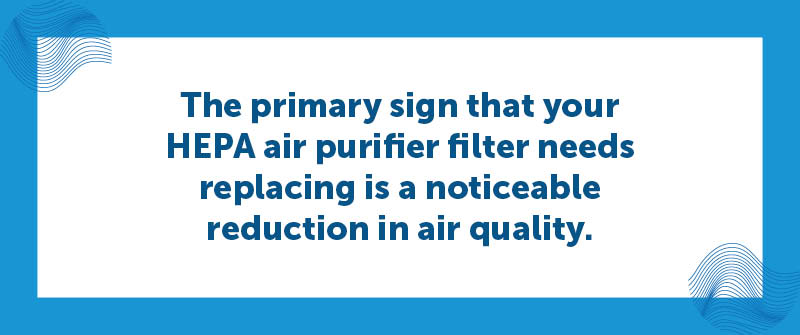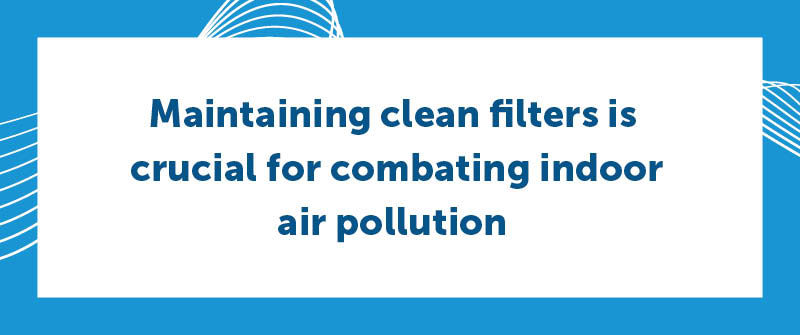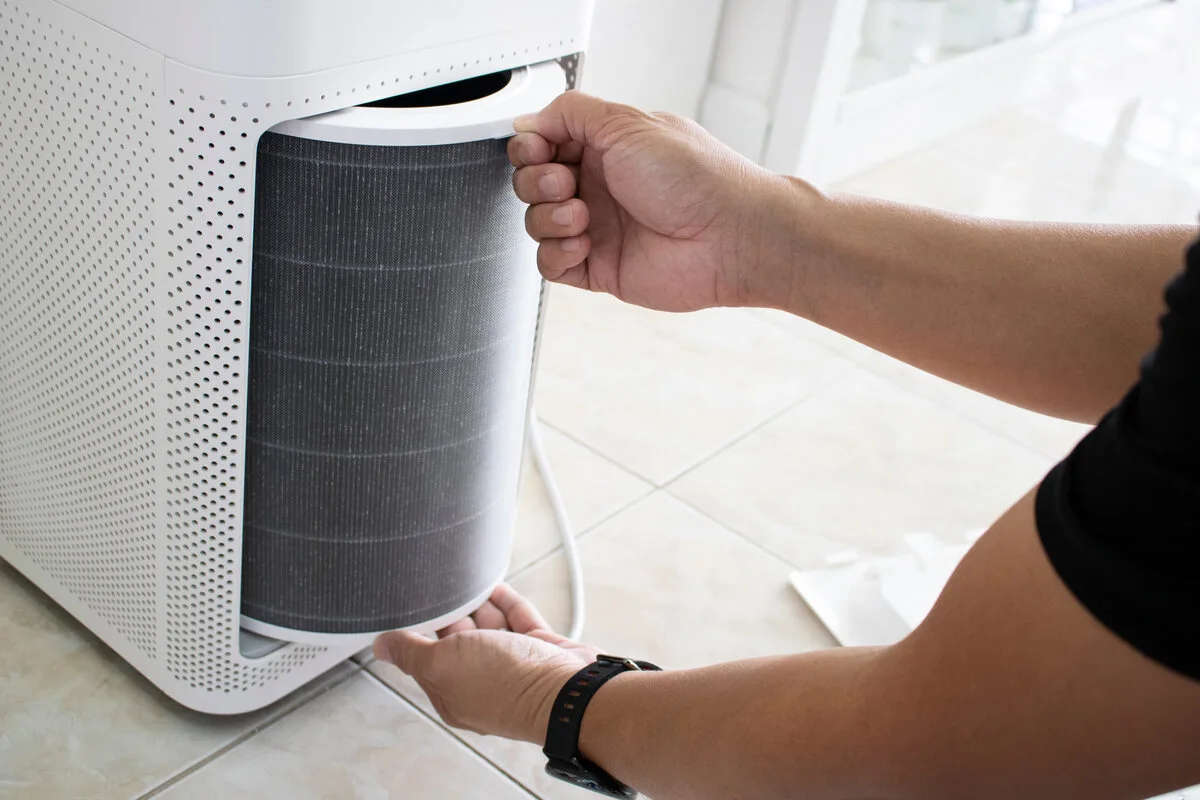How Long Do Air Purifier Filters Last: Knowing When Replacement is Needed
Understanding Air Purifier Filters
What Are Air Purifier Filters and How Do They Work?
Air purifier filters are the heart of any air purification system, playing a crucial role in enhancing indoor air quality. These filters work by drawing in air from your living space, capturing harmful airborne particles, and then releasing clean, purified air back into the room. The effectiveness of an air purifier largely depends on the type and quality of its filters. High-quality filters can trap a wide range of pollutants, including dust, pollen, mold spores, and even certain bacteria and viruses, ensuring that the air you breathe is as clean and healthy as possible.
Types of Air Purifier Filter Replacements
When it comes to air purifier filters, one size does not fit all. Different filters are designed to tackle various types of pollutants, making it essential to choose the right one for your needs. Here are the most common types of air purifier filters:
- HEPA Filters: High-Efficiency Particulate Air (HEPA) filters are renowned for their ability to capture 99.97% of particles as small as 0.3 microns. This includes dust, pollen, mold spores, and certain viruses and bacteria, making HEPA filters a top choice for those looking to improve indoor air quality significantly.
- Activated Carbon Filters: These filters are excellent at removing gases, odors, and volatile organic compounds (VOCs) from the air. They work by adsorbing these pollutants onto the surface of the carbon, effectively neutralizing unpleasant smells and harmful chemicals.
- Pre-Filters: Pre-filters are designed to capture larger particles like pet hair and dust, extending the life of the primary filter. By trapping these larger contaminants, pre-filters help maintain the efficiency of the main filter.
- Carbon Filters: Similar to activated carbon filters, carbon filters are specifically designed to remove smoke, gases, and unpleasant odors from the air, making them ideal for homes with smokers or pets.
By understanding the different types of air purifier filters and their specific functions, you can make an informed decision that best suits your air purification needs.
Recognizing A Clogged Or Dirty Filter
The primary sign that your HEPA air purifier filter needs replacing is a noticeable reduction in air quality. When a filter is clogged or dirty, it can no longer effectively trap dust, allergens, and other airborne particles. Over time, you may observe an increase in dust accumulation on surfaces around your home or experience worsening allergy symptoms. Factors like pet dander and hair can significantly influence how long an air purifier filter lasts, often leading to more frequent replacements if you have multiple pets.

Decrease In Airflow Or Effectiveness
Another clear indication that it’s time for a filter replacement is a decrease in the air purifier’s performance. If the air flowing out of the purifier seems weaker than usual, the filter may be obstructing proper circulation. This decline in performance not only hampers the purifier’s effectiveness but also causes it to work harder, potentially leading to higher energy bills.
Strange Smells And Indicator Lights
Strange or unpleasant odors emanating from your air purifier can also signal the need for a new filter. These smells often result from bacteria or contaminants accumulating on the dirty filter. Additionally, many purifiers come equipped with filter replacement indicator lights. Ensure you monitor these lights regularly, as they provide a straightforward notification when a new filter is necessary. Always refer to the air purifier’s manual for specific recommendations on filter replacement frequency.
How Often Should I Replace My Air Purifier Filter?
How often to change a HEPA filter in an air purifier is a common question among homeowners aiming to maintain optimal air quality in their living spaces. To maintain this quality, it is crucial to regularly replace air purifier filters. Generally, the lifespan and replacement frequency depend on the type of air purification system you use, the environmental conditions of your home, and the filter lifespan guidelines provided by manufacturers.
General Guidelines For HEPA Filter Replacement
As a rule of thumb, most HEPA air filters need replacing every 12 to 18 months to ensure efficiency, with maintenance recommendations suggesting regular checks. However, this can vary based on how much you use your air purifier and the quality of air in your environment. For environments with higher pollution levels or those with respiratory sensitivities, more frequent replacements, potentially every 6 months, might be necessary.
Impact Of Air Quality And Usage On Filter Replacement Frequency
If your home is located in an urban area with high pollution or you have pets, you may need to replace your filter more often to maintain energy efficiency and indoor air quality. Likewise, if your unit is running continuously, the filter will need more frequent upkeep compared to intermittent use. High levels of air pollution can necessitate even more frequent filter replacements to ensure the air purification system remains effective.
Comparison Between Different Air Purifier Brands
Different brands have unique specifications and recommendations for filter replacement. For example, some brands might offer high-efficiency filters that last longer, while others might propose frequent replacements for optimal performance. It’s essential to refer to the specific guidelines of your air purifier model to establish a proper maintenance schedule.
EPA Recommendations On Filter Maintenance
The EPA suggests that knowing when to replace filters is crucial for maintaining optimal performance and air quality, reducing energy consumption, and maximizing air purifier effectiveness. Regular inspection and adhering to recommended replacement intervals can prevent unnecessary stress on the system and ensure that your air purifier operates efficiently.
Benefits of Regular Filter Replacement
Improved Air Quality and Reduced Dust
Regularly replacing your air purifier filters is essential for maintaining optimal air quality in your home. A dirty or clogged filter can significantly reduce the effectiveness of your air purifier, allowing airborne particles and pollutants to circulate freely. By ensuring timely filter replacements, you can keep your air purifier functioning at its best, effectively removing dust, allergens, and other harmful particles from the air.
Regular filter replacement offers several benefits, including:
- Reduced Allergy Symptoms and Respiratory Issues: Clean filters ensure that allergens and irritants are effectively trapped, reducing the risk of allergy flare-ups and respiratory problems.
- Elimination of Unpleasant Odors and Gases: Fresh filters, especially activated carbon filters, are more efficient at removing odors and volatile organic compounds, keeping your home smelling fresh and clean.
- Improved Performance and Efficiency: A clean filter allows your air purifier to operate more efficiently, reducing energy consumption and extending the lifespan of the device.
- Extended Lifespan of the Air Purifier: Regular maintenance and filter replacement prevent unnecessary strain on the air purifier, ensuring it remains in good working condition for years to come.
By understanding the importance of regular filter replacement, you can enjoy cleaner, healthier air in your home and reduce the risks associated with poor indoor air quality. For cost-effective and reliable filter replacements, consider visiting DiscountFilters.com, where you can find a wide range of high-performance filters to suit your needs.
Can I Just Clean My Air Purifier Filter?
When it comes to air purifier filter maintenance, a common question is whether you can clean the filter instead of replacing it. This decision largely depends on the type of filter your device uses. Understanding the distinction between washable and non-washable filters is crucial to ensuring your air purifier functions effectively. Maintaining clean filters is also crucial for combating indoor air pollution, which can be five times worse than outdoor air due to pollutants like dust, dander, and gases from cooking and cleaning products.

Distinction Between Washable And Non-Washable Filters
Some air purifiers are equipped with washable filters, which can be cleaned with water and gently dried before reuse. These filters are typically made of materials durable enough to withstand washing without degrading. However, not all filters have this capability.
The most commonly used type, the HEPA filter, often falls into the non-washable category. HEPA filters are designed to capture tiny particles, and when exposed to water, their efficiency can be significantly compromised. It is vital to refer to your air purifier’s user manual to determine if cleaning is an option for your specific model.
Cleaning Methods For Reusable Filters
For reusable or washable filters, straightforward cleaning methods can prolong their life. Begin by gently removing the filter from the purifier and shaking off loose debris. Rinse it under mild, running water until all visible dirt is gone, and allow it to air dry completely before reinserting it into the purifier. This process can be an economical option to extend the usability of your filter.
Risks Of Cleaning Non-Washable HEPA Filters
Attempting to clean a non-washable HEPA filter can introduce risks such as reduced efficiency and potential damage. Washing such a filter may break down the fibers that are critical in trapping particles, making it less effective or rendering it useless. Instead, tapping out excess dust or lightly vacuuming the surface may be safer approaches, but these methods are only temporary solutions until a replacement is necessary.
Best Practices For Maintaining Filter Longevity
Whether your filter is washable or not, regular maintenance can improve its performance and lifespan. For washable filters, routine cleaning can keep them in peak condition. For non-washable filters, adhering to the suggested replacement schedule is advisable. Promoting optimal air quality by maintaining relative humidity and minimizing dust can also enhance filter longevity.
By following these guidelines, you can ensure your air purifier continues to function effectively, contributing to a healthier home environment. For filters that require regular replacement, visiting sites like DiscountFilters.com could provide cost-effective solutions and a national reach for easy filter acquisition.
Can A HEPA Filter Last 10 Years?
Typical Lifespan Of HEPA Filters
HEPA filters are renowned for their effectiveness in removing airborne particles like allergens, dust, and smoke. Typically, the lifespan of a HEPA filter can range from 6 to 12 months, depending largely on usage and environmental conditions. While some durable HEPA filters may last up to two years under optimal conditions, claims of a HEPA filter lasting 10 years are generally unrealistic. Consistently high-quality performance requires regular maintenance and replacement of the filter within the recommended timeframe to ensure efficiency.
Technological Advances In HEPA Filter Design
Technological advancements have brought about improvements in HEPA filter design, enhancing their durability and performance. Modern HEPA filters use advanced materials that can trap even smaller particles while offering improved airflow. However, even with these advancements, it’s crucial to remember that regular maintenance and timely replacements are necessary.
Environmental Factors Affecting Filter Longevity
Environmental factors significantly impact the lifespan of a HEPA filter. High pollution levels, frequent use, and factors like pet dander or smoking can lead to quicker clogging of the filter, reducing its effectiveness. Ensuring a clean environment and using the air purifier in moderation can help maximize the filter’s lifespan.
Products Claiming Extended Lifespan And Their Credibility
Some HEPA filters claim to have an extended lifespan, sometimes even suggesting a duration of several years. While these claims sound enticing, it’s important to evaluate these products’ credibility. Always check for third-party reviews and adhere to manufacturer guidelines to maintain optimal air quality and filter performance. Regular replacements are still recommended for continued efficacy.
Unlock the secret to fresher air in your home by visiting DiscountFilters.com, where we offer a comprehensive selection of reliable, high-performance filters for every appliance, including HEPA filters that maximize your indoor air quality.

